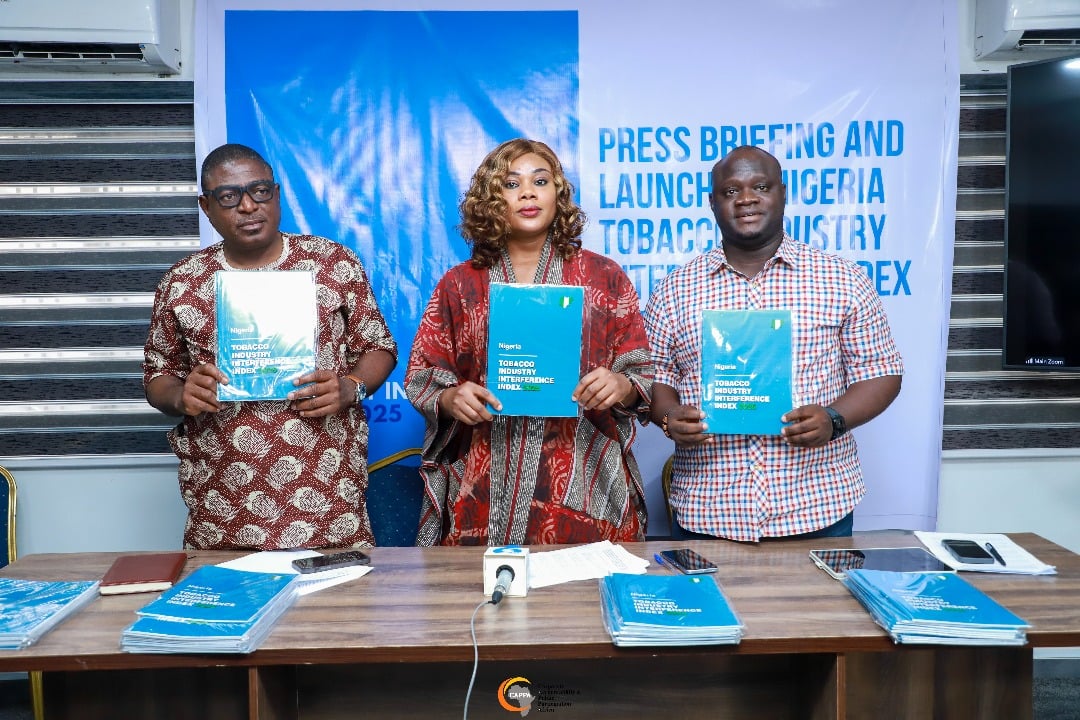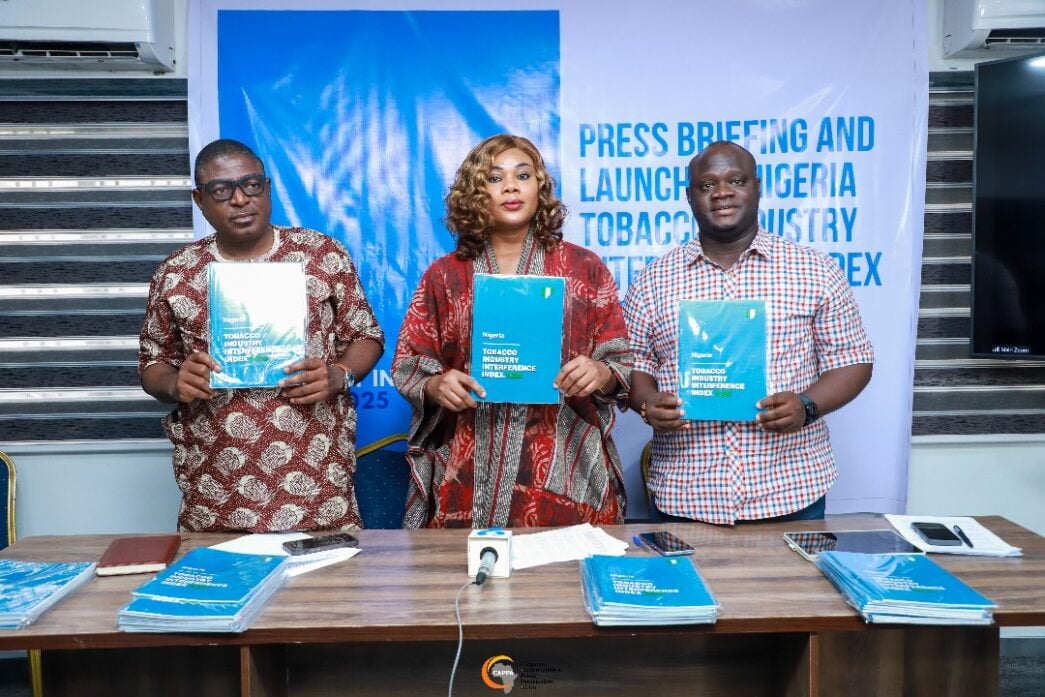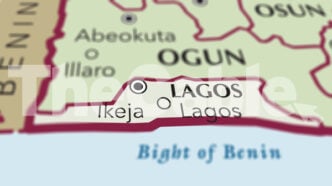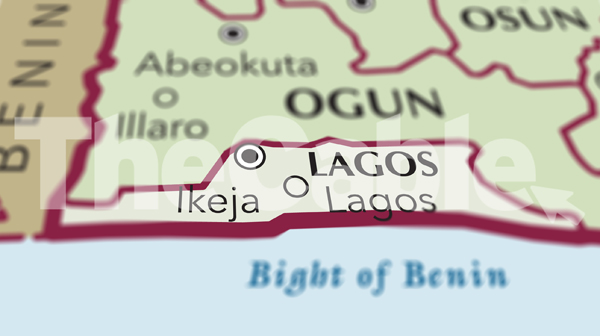The Corporate Accountability and Public Participation Africa (CAPPA) has released a report showing that Nigeria has slipped in the global ranking of countries protecting their public health policies from tobacco industry influence.
Quoting the 2025 Nigeria Tobacco Industry Interference (TII index), CAPPA said out of 100 countries assessed globally, Nigeria now ranks 54th.
The report, produced by CAPPA, shows that Nigeria’s score dropped from 60 in 2023 to 62 in 2025, indicating growing interference from tobacco corporations in policymaking.
“The findings, covering April 2023 to March 2025, form part of the global civil society-led initiative grounded in Article 5.3 of the World Health Organisation Framework Convention on Tobacco Control (WHO-FCTC), which warns that the interests of the tobacco industry and public health are irreconcilable,” CAPPA noted.
Advertisement
Speaking at a press conference on Thursday, in Lagos state, Akinbode Oluwafemi, CAPPA’s executive director, said the index exposes how the tobacco industry continues to exploit weak enforcement of Nigeria’s tobacco control laws to disguise itself as a partner in national development.
“This year’s score of 62 confirms that industry interference remains a systemic threat to our public health architecture,” Oluwafemu said.
Oluwafemi alleged that the industry’s corporate social responsibility (CSR) initiatives, such as borehole donations, scholarships, and reforestation drives “are used to mask interference and buy legitimacy”.
Advertisement
“These are not acts of generosity, but manipulation designed to whitewash an image built on addiction and profit,” he noted.
“Even worse, government officials continue to attend and praise these events, helping the industry greenwash its deadly business.”
Oluwafemi described the tobacco industry’s growing participation in policy discussions as “deeply troubling”, particularly regarding emerging nicotine products such as e-cigarettes, snus, and other novel products marketed as harm reduction tools.
“The tobacco industry is not a stakeholder in public health. Its interest is in selling more cigarettes, more nicotine, and more death and disease,” Oluwafemi said.
Advertisement
While acknowledging progress in some areas, Oluwafemi pointed to the Federal Competition and Consumer Protection Commission’s (FCCPC) $110 million fine against British American Tobacco Nigeria (BATN) in 2023 and the National Film and Video Censors Board’s ban on the glamorisation of smoking in Nollywood as major wins.
However, he lamented inconsistent policies, including the suspension of tobacco excise taxes in 2023, which reversed earlier gains and weakened Nigeria’s alignment with WHO and ECOWAS tax standards.
“Nigeria cannot afford to take one step forward and two steps back. Strong laws mean little without consistent enforcement,” he said.
Presenting the report, Zikora Ibeh, CAPPA’s assistant executive director, said the 2025 index assessed seven key areas which are policymaking participation, CSR, benefits to the industry, unnecessary interaction, transparency, conflict of interest, and preventive measures.
Advertisement
Ibeh said the worsening score reflects how “for every rule that should keep the industry out of policymaking, another action quietly lets it in.”
“The report’s findings include CSR as a Gateway. The British American Tobacco Nigeria Foundation (BATNF) continues to partner with state ministries and local governments in defiance of national laws, using empowerment programmes as a ‘sophisticated strategy to embed itself in governance systems'” CAPPA said.
Advertisement
“Policy reversal: The 2023 suspension of an increase in tobacco excise taxes weakened Nigeria’s fiscal and health response, shifting costs to citizens while protecting industry profits.
“Transparency gaps: Despite section 25 of the National Tobacco Control Act mandating disclosure of official interactions with the industry, most government agencies fail to make such information public.
Advertisement
“Weak preventive systems: Few government officials have received training on Article 5.3 of the WHO-FCTC, leaving many unaware that participating in tobacco-funded events violates public health ethics.”
CAPPA added that the 2025 Index calls for urgent government action to strengthen policy independence and transparency in tobacco control.
Advertisement
CAPPA, therefore, recommends enforcing full disclosure of all government interactions with tobacco companies.
“Ban tobacco industry-led CSR across all public institutions,” it added.
“Strengthen conflict-of-interest safeguards requiring public officials to declare any personal or financial ties to tobacco companies.
“Restore a predictable, inflation-adjusted tobacco tax system aligned with WHO and ECOWAS standards.
“Enforce pictorial health warnings covering at least 60 percent of tobacco packaging.
“Exclude tobacco companies from policy consultations and regulatory discussions, including those concerning emerging nicotine products.”
Oluwafemi urged the federal government to see tobacco control not only as a health priority but as a matter of governance and democracy.
“What is at stake is not just the health of individual smokers but the health of our democracy – the ability of our public institutions to act independently of corporate capture,” he said.












